

Ménestrel. Buddha's remains may have been discovered by Chinese archaeologists. A discovery found hidden inside a 1,000-year-old Chinese chest could help archaeologists reach enlightenment.
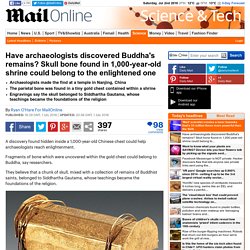
Fragments of bone which were uncovered within the gold chest could belong to Buddha, say researchers. They believe that a chunk of skull, mixed with a collection of remains of Buddhist saints, belonged to Siddhartha Gautama, whose teachings became the foundations of the religion. A fragment of bone found in a tiny golden casket (pictured) uncovered in China may have belonged to Siddhartha Gautama, whose teachings became the foundations Buddhism Inscriptions carved into the protective stone chest in a crypt under the temple tell the story of how Buddha's skull came to lie in the tiny golden chest within. THE DARK HISTORY OF THE TEMPLARS. Although the crusaders are commonly thought to have been motivated by their deep Christian faith, crusades were actually wars inspired by avarice.
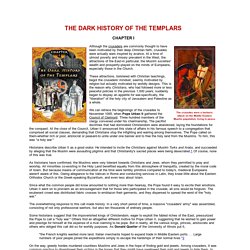
At a time of utmost poverty and misery prevalent in the West, the attractions of the East-in particular, the Muslim societies' wealth and prosperity-played on the minds of Europeans, especially those in the Church. These attractions, bolstered with Christian teachings, begot the crusaders' mindset, seemly motivated by religion but actually motivated by worldly designs. This is the reason why Christians, who had followed more or less peaceful policies in the previous 1,000 years, suddenly began to display an appetite for war-specifically, the "liberation" of the holy city of Jerusalem and Palestine as a whole. We can retrace the beginnings of the crusades to November 1095, when Pope Urban II gathered the Council of Clermont. Three hundred members of the clergy convened under his chairmanship. Historians describe Urban II as a good orator. Melisende, Crusader Queen of Jerusalem. The Serpentine - Serpent sacred to ISIS, Diana mememorial.
Route map: Bing / Google The Serpentine (also known as the Serpentine River) is a 40-acre (16 ha) recreational lake in Hyde Park, London, England, created in 1730 at the behest of Queen Caroline.
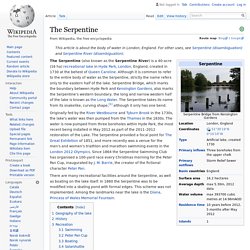
Although it is common to refer to the entire body of water as the Serpentine, strictly the name refers only to the eastern half of the lake. Serpentine Bridge, which marks the boundary between Hyde Park and Kensington Gardens, also marks the Serpentine's western boundary; the long and narrow western half of the lake is known as the Long Water. The Serpentine takes its name from its snakelike, curving shape,[1] although it only has one bend.
Knights Templar History and Freemason Mysteries. There are various avenues which can be followed in Freemasonry.
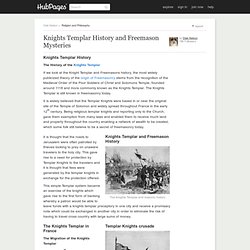
The three most popular avenues being the Royal Arch, Rosicrucian (Rose Croix) or Knights Templar degrees. There are 4 world wide accepted degrees which must be completed by a new person deciding to enter freemasonry which shall we say are the basis of understanding to Freemasonry. The other avenues are all different in their teachings and handle different aspects of Freemasonry. There are many opinions and schools of thought on the dates that speculative Freemasonry came into existence with the most common being 1717.
The Knights Templar were said to have obtained secrets throughout their travels from the ancient mysteries in Alchemy, Magic and Building Techniques scattered through history by the likes of the Greek, Roman and Egyptian civilisations. Well I hope you enjoyed reading my opinion. Thanks Dale. Archaeology. Archaeology studies human prehistory and history from the development of the first stone tools in eastern Africa 4 million years ago up until recent decades.[4] (Archaeology does not include the discipline of paleontology.)
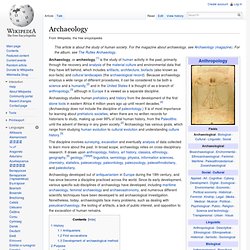
It is of most importance for learning about prehistoric societies, when there are no written records for historians to study, making up over 99% of total human history, from the Paleolithic until the advent of literacy in any given society.[2] Archaeology has various goals, which range from studying human evolution to cultural evolution and understanding culture history.[5] Archaeology developed out of antiquarianism in Europe during the 19th century, and has since become a discipline practiced across the world. History[edit] Antiquarians[edit] The science of archaeology (from Greek ἀρχαιολογία, archaiologia from ἀρχαῖος, arkhaios, "ancient" and -λογία, -logia, "-logy")[10] grew out of the older multi-disciplinary study known as antiquarianism. First excavations[edit]